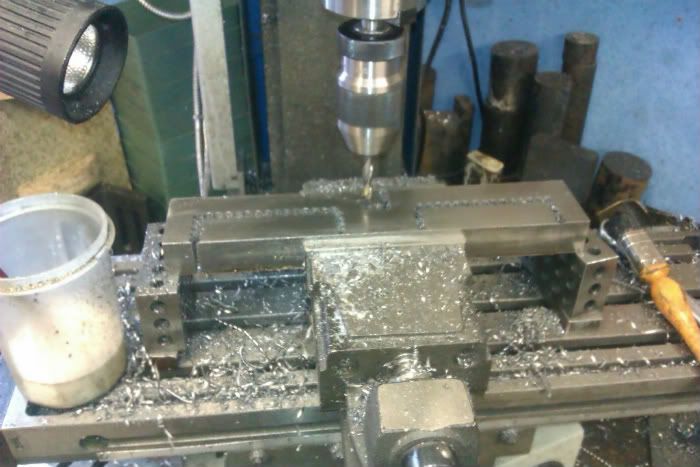Dunc,
First, if you look at these masonry drills, even new ones, the included angle of the cutting edge is somewhere around 90 degrees or more, so will be much stronger than the edge of a metal cutting tool. Second – and this is a little more specualtive on my part – tungsten carbide tools are not pure WC, they are WC powder in a metal matrix; variations in the amount, composition and structure of the matrix will give a trade off between hardness and toughness, and I guess masonry bits tend to the latter. Third, even if blunted, the hammer action relies on battering the brick or whatever into powder and then scooping it out; I doubt if real sharpness is an essential for this.
They would be fairly poor at cutting metal without serious re-grinding; I'm sure they would scrape their way through, but it wouldn't be pretty. If you want to try, I suggest cast iron might be good, it quite likes a negative rake.
They are pretty good for getting through ceramic tiles – but don't forget to switch off the hammer action! Also, make a nick in the glaze to stop the point skidding around uncontrollably, or use a bit of masking tape for the same purpose.
David
Edited By David Littlewood on 23/09/2012 17:14:47
David Littlewood.





